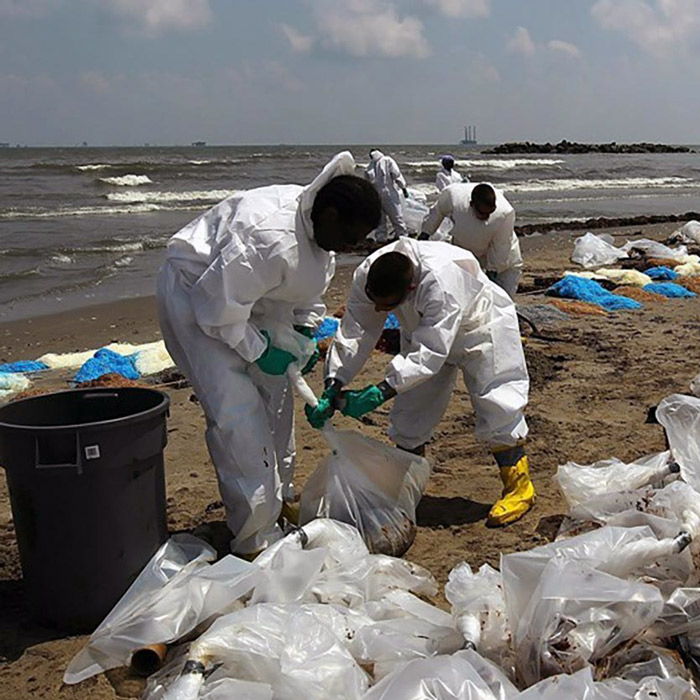Partnerships for Environmental Public Health (PEPH)

NIEHS Program Builds Careers, Changes Lives (Part I)
December 11, 2020
Interviewees: Sharon Beard and Martanaze Hancock
In this podcast, you’ll hear how the NIEHS Environmental Career Worker Training Program (ECWTP) enhances life skills, creates jobs, and provides sustainable career opportunities for underserved populations across the U.S. To celebrate the program’s 25th anniversary, Sharon Beard, ECWTP director, and Martanaze Hancock, a program graduate, share their stories.
NIEHS Program Builds Careers, Changes Lives
This year marks the 25th anniversary of the NIEHS Environmental Career Worker Training Program (ECWTP) which has delivered job training to thousands of people in disadvantaged communities across the U.S. The program prepares trainees for jobs in environmental cleanup, construction, hazardous waste removal, and emergency response.
Nested under the NIEHS Worker Training Program, the ECWTP funds nonprofit organizations to deliver life skills and job readiness training to underemployed individuals, giving them an opportunity to obtain sustainable careers and change their lives for the better. The life-changing impact of the ECWTP is evident through the many success stories of program graduates.
In this podcast, you’ll hear from Sharon Beard, director of the ECWTP, and Martanaze Hancock, a program graduate. They share how the program enhances life skills, creates jobs, and provides sustainable career opportunities for underserved populations across the nation.
Interviewees

Sharon Beard, an industrial hygienist, has directed the ECWTP since it began in 1995, when it was called the Minority Worker Training Program. Beard has decades of experience working with underserved communities and a passion for ensuring that all workers are given equal opportunities to safe, sustainable, and good-paying jobs. As part of her graduate work at Tufts University in 1993, she worked with low-income workers and communities as part of the Dudley Street Neighborhood Initiative in Boston. This experience helped Beard understand the struggles of poverty, environmental justice issues, and disenfranchisement on local communities.
Beard’s roots in worker health and equity can be traced back to her childhood and hometown. Born and raised in Gastonia, North Carolina, home of the 1929 Loray Mill strike, many of Beard’s family members lived near or worked at textile mills throughout the region. Her pursuit of a career in industrial hygiene was inspired by the countless stories she heard from her grandfather and other family members growing up. The first to get a college degree in her family, Beard notes that training and mentorship made a huge difference in her life.
Martanaze Hancock graduated from the ECWTP in 1994, when it was called the Minority Worker Training Program. Hancock was among the first group of graduates from the Alice Hamilton Occupational Health Center, a former grantee. Hancock has been working in the environmental field ever since.
After graduating from the ECWTP, Hancock went on to become a hazard reduction supervisor with Local 24 of the Heat, Frost, and Insulators Union. There, he supervised many hazard reduction projects in the Washington, D.C. area. Years later, he returned to the Alice Hamilton Occupational Health Center as a trainer and then became program director for the center's Minority Worker Training Program. When he joined the National Paint and Coatings Association in 2003, he traveled to all 50 states educating workers on the dangers of lead paint and renovation hazards. Hancock currently works for UIC Government Services as a health, safety, and environmental specialist where he manages the health and safety program for over 3,000 employees on several contracts spread throughout the U.S.
Additional Resources
- Visit the NIEHS Worker Training Program and ECWTP webpages to learn more about program goals and grantees.
- Visit the ECWTP 25th Anniversary webpage to learn more about successes of program graduates.
- Read about the economic benefits of the ECWTP (1MB) in a 2015 report from NIEHS.
- Watch a video where Hancock talks about lead hazards and renovation during a 2010 nationwide lead training for renovators and remodelers.


